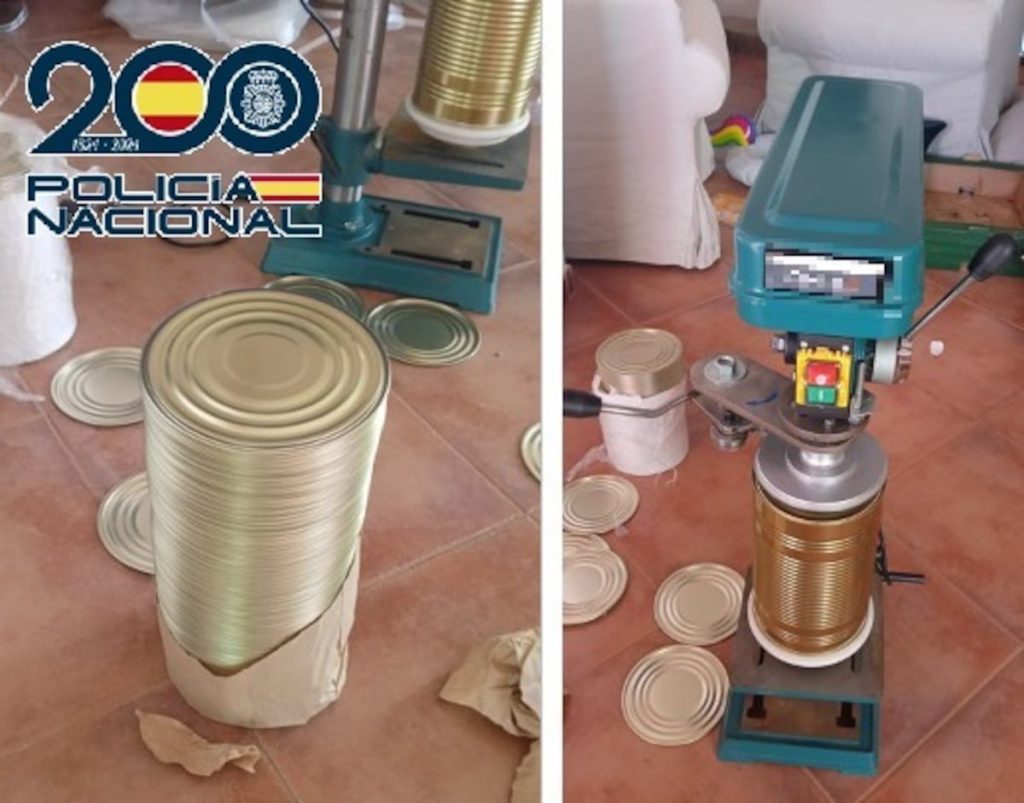A group of narcotraffickers was recently caught by the National Police in Spain for smuggling 60 kilos of marijuana hidden inside cans labeled as black olives. The shipment was en route from Vélez-Málaga to Lithuania, disguised as a legitimate cargo. This creative method of transporting drugs is just one of the many ways in which criminal organizations attempt to smuggle illicit substances. The investigation, led by the Organized Crime Group of the Fuengirola Police Station, uncovered the operation and resulted in the arrest of three Lithuanian nationals who were involved in the scheme.
Over the years, law enforcement on the Costa del Sol has dismantled various criminal organizations that have utilized ingenious methods to conceal drugs. From hiding hashish and marijuana in tomato cans to using cookie boxes or onion shipments to mask the scent, these traffickers have employed a wide range of tactics. Some have gone as far as building their own ornamental fountains and homemade ovens to hide drugs before exportation. In this particular case, the criminals were packaging cannabis in containers labeled as olives to transport it to Lithuania, a journey of almost 4,000 kilometers by road from Málaga.
The investigation uncovered that the traffickers had acquired an empty canning machine and dozens of empty cans identical to those on a pallet of olives, which they purchased from an external company. They would then hide bags of marijuana in the cans, seal them with the specific machinery, and affix legal pickled olive labels on the containers. The shipment was meticulously organized on the pallet, with each can placed in a predetermined location according to a diagram, and wrapped in the same manner as it was received. They even filled other cans with sand to offset the weight difference from the marijuana, ensuring that only the first row contained actual olives.
The trafficking group had engaged a legitimate logistics company based in Alhaurín de la Torre to store and transport the cargo to Lithuania, where drugs like hashish and marijuana command a much higher price than in Spain. While a kilo of marijuana may cost around 1,900 euros in Spain, it fetches triple that amount in Lithuania. This smuggling operation represented the third such shipment to the Baltic nation, with previous deliveries occurring in 2023 and 2024. The individuals involved have been charged with drug trafficking and belonging to a criminal organization, and have been remanded in custody by the Vélez-Málaga Investigative Court.
Authorities have also uncovered other elaborate drug smuggling schemes, such as 22 tons of hashish concealed in fake tomato units destined for export to France, and marijuana hidden in cookie boxes as part of a network involving an artisan who crafted ornamental garden fountains to conceal illicit substances. The use of tomato cans, preserved jars, and vacuum-packed cannabis under fruit shipments are prevalent methods employed by traffickers to evade detection. From sports bags to paint materials, furniture, or even humanitarian aid, criminal organizations go to great lengths to conceal drugs and avoid law enforcement scrutiny.















